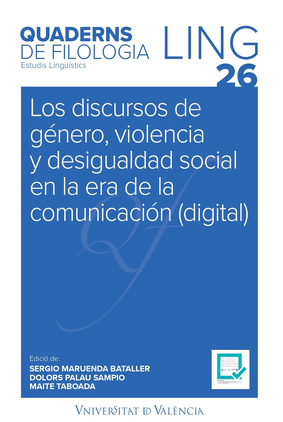Self-identity and media discourses of disability in the digital sports press
DOI:
https://doi.org/10.7203/qf.0.21981Keywords:
media self-identity, digital media, disability, media representation, paralympics. Abstract
Abstract
This research addresses the relationship between media and disability from the area of sports journalism with the Colombian digital press coverage of the Rio 2016 Paralympic Games. The study analyzed the meanings assigned by Colombian Paralympic athletes to the news published by the digital media about their participation, as well as the elements of such news and the way in which they influenced their media self-identification. From a critical-interpretative approach, the research was developed in two phases: in the first phase, a textual analysis of 559 digital news items published on the subject was carried out; in a second phase, the data obtained were confronted with the 45 protagonists of the news items through semi-structured interviews. It was found that most athletes lack knowledge and adoption of the progressive model of media representation of disability, so they value the “supercrip” media discourses with which they are represented as heroes or models of inspiration, not for their sporting achievements, but for their ability to cope “despite” disability. It is concluded that, to the extent that digital media show them as athletes, especially those who inspire other people with and without disabilities, they increase the chances of these athletes developing a media self-identity. In this sense, based on the positive or negative assessment of certain elements of the news, athletes felt media self-identified in an imposed, assumed, negotiated or rejected way.
 Downloads
Downloads
Downloads
Published
How to Cite
-
Abstract1395
-
PDF (Español)870
Issue
Section
License
 Este obra está bajo una licencia de Creative Commons Reconocimiento-NoComercial-SinObraDerivada 4.0 Internacional.
Este obra está bajo una licencia de Creative Commons Reconocimiento-NoComercial-SinObraDerivada 4.0 Internacional.
Authors who publish with this journal agree to the following terms:
- Authors retain copyright and grant the journal right of first publication with the work simultaneously licensed under a Creative Commons Attribution License that allows others to share the work with an acknowledgement of the work's authorship and initial publication in this journal.
- Authors are able to enter into separate, additional contractual arrangements for the non-exclusive distribution of the journal's published version of the work (e.g., post it to an institutional repository or publish it in a book), with an acknowledgement of its initial publication in this journal.
- Authors are permitted and encouraged to post their work online (e.g., in institutional repositories or on their website) prior to and during the submission process, as it can lead to productive exchanges, as well as earlier and greater citation of published work (See The Effect of Open Access).




